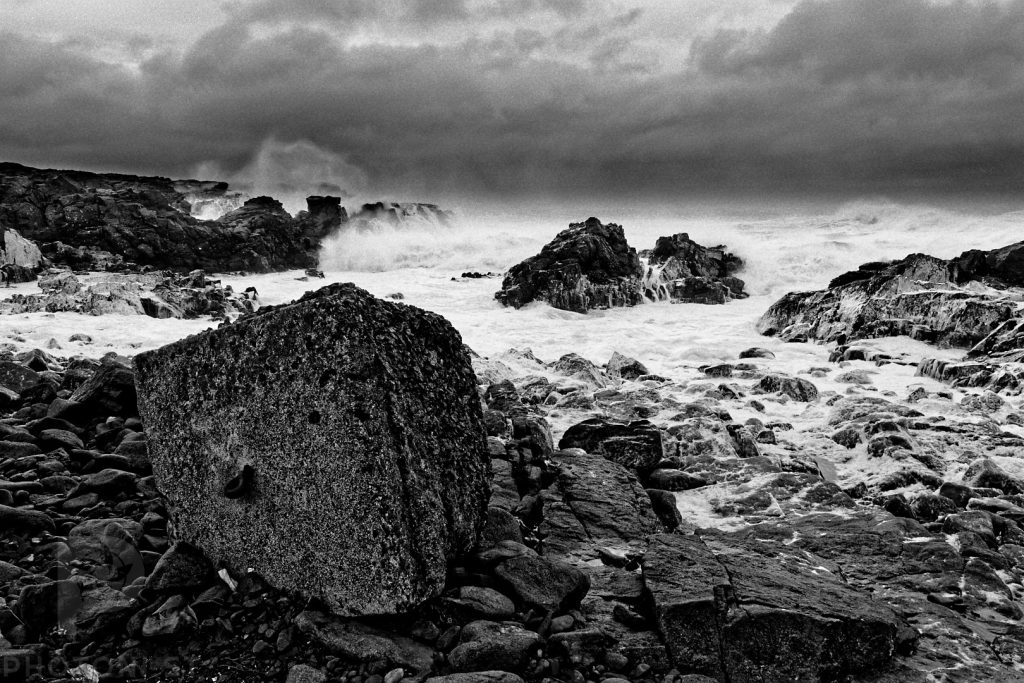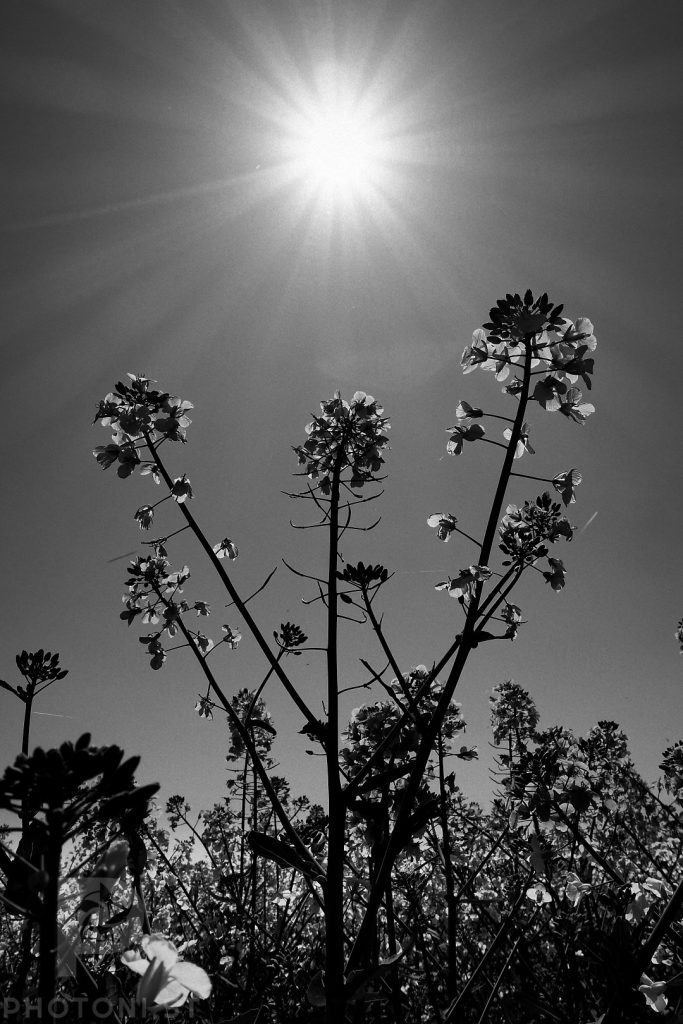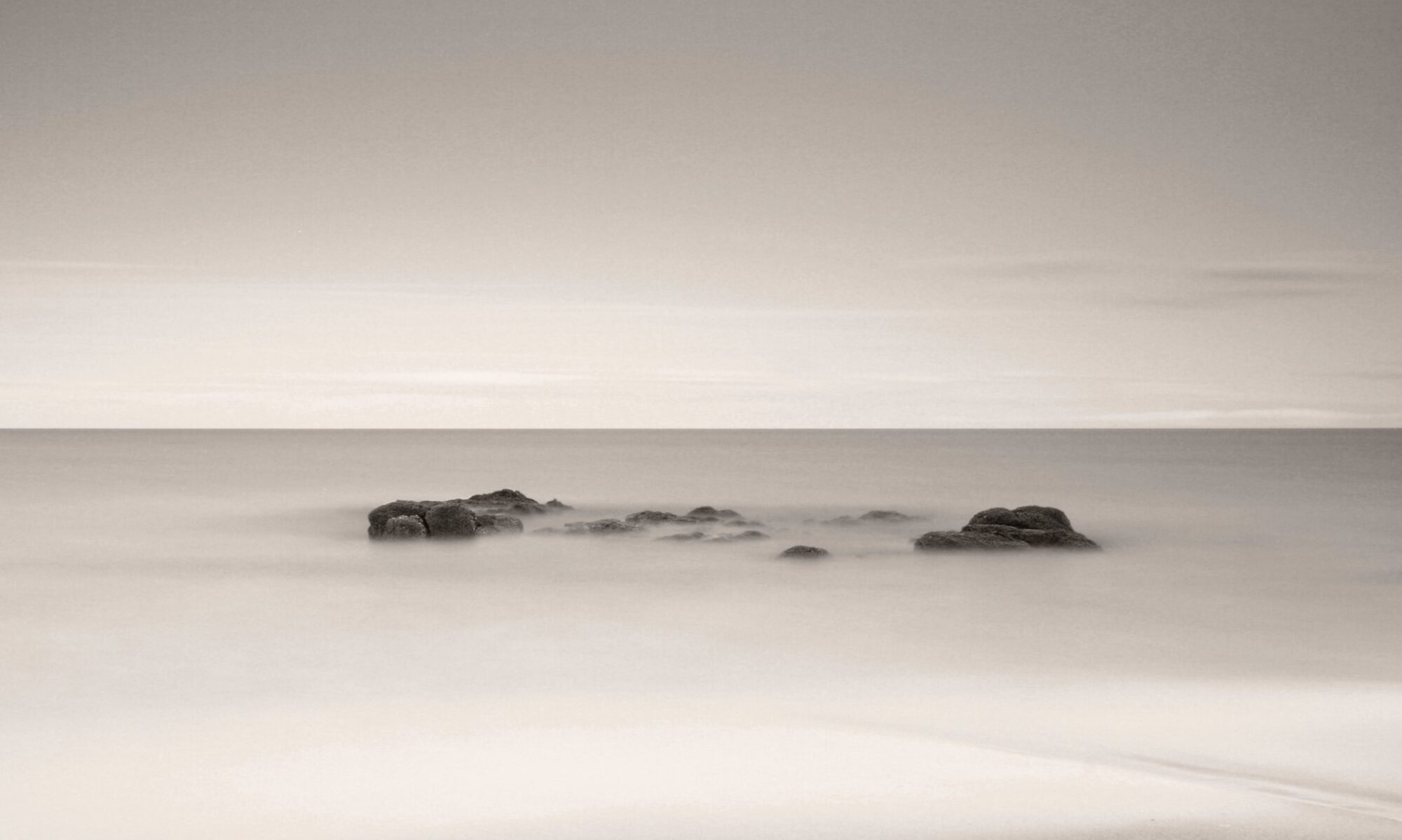Switching to monochrome has changed how I see photography from the conceptual viewpoint, but also from the process viewpoint.

I mentioned before that monochrome has shown me a different way of looking at the world. A way that relies more on semantics and storytelling than prettiness.
One of the other things monochrome has taught me is to let go. When I was taking colour images, I was looking for perfection. Every pixel had to be the way I wanted it: I’d remove a single blade of grass in a corner I didn’t like; I’d use ND grad filters and I’d bracket like crazy (taking photos at sunrise, the exposures are tricky); I’d adjust the saturation of every zone separately to have the colours and contrast I had in my head; I’d go over a photograph millimeter by millimeter to remove any parasitic aspect I didn’t like such as a bird in the sky or a wrong splash of a wave. It was exhausting.

With monochrome, I pretty much go with what comes out of the camera. I spend very little time making adjustments. A tiny crop once in a while because I forget that my camera has a zoon (I exclusively use it at the wide end like it’s a prime). A contrast increase when I missed the mark a little bit. Add grain. But that’s it. Monochrome embodies imperfection, and therefore faithfulness to the reality of the moment is more important than perfection that matches a preconceived idea.

It’s liberating. It means that I’m more aware of the moment instead of observing the scene and matching it to my idea. I pay more attention to movement and changes than when I was taking colour images. I see more and capture more of reality than when I was trying to make reality match my idea.
What I capture is of course not reality. That doesn’t exist in photography since as a photographer I choose angles, exposures, even the fact that I shoot monochrome. But I feel that the images I produce that way are more faithful to the world I see. In a way it’s a step back from my transition to more intention photography. But I see it more as a readjustment to the right middle ground between randomly taking what’s there, and making what I imagined using reality.
With monochrome, I also shoot with small cameras (a Sony RX100III set to black and white at the moment) that I would have considered toys a few years ago. I still love my big Canons (especially the 1DX and the 6D which produce great tones and are extremely sensitive), but I use them less and less unless I do portraits or planned landscapes. Monochrome has freed me from gear worries and even gear care. I now understand that the camera you use doesn’t matter that much to produce something important (to you).
I see all those YT videos about gear and how people obsess about it and I recognise my past self in it. There is nothing wrong with that if it’s what interests you. But now I think “Eh! Who cares? The camera doesn’t take the photos” and I feel freer. I just ignore them and concentrate on those that talk about photography.
Maybe it’s just me, but monochrome has completely changed the way I take photos and I wish I had discovered that many years ago.
#Photography #Opinion #IMayBeWrong #Theory #PhotographyTheory

